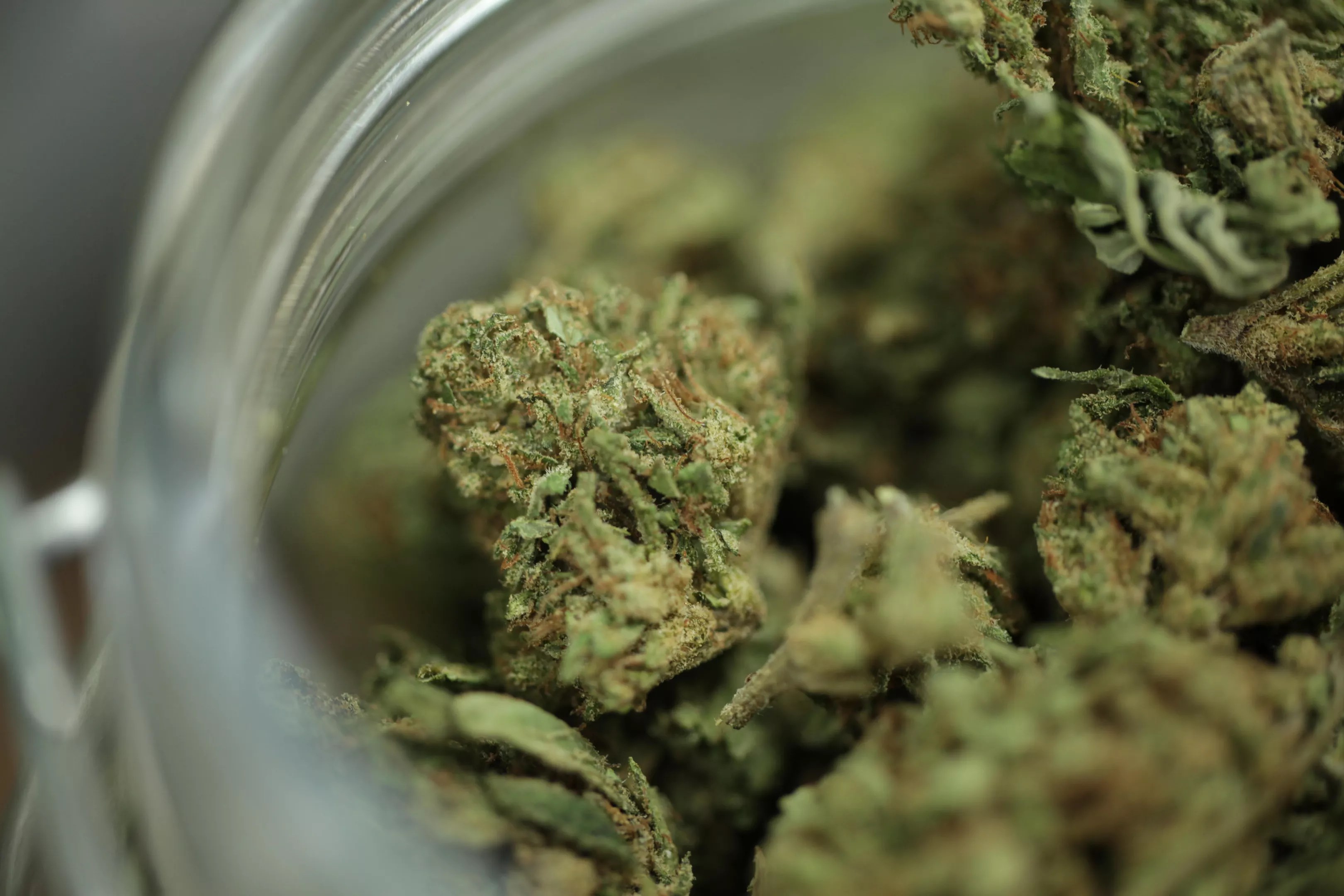
Malen Blackmon

Audio By Carbonatix
A smoke shop in Garland was raided on June 7 for allegedly selling products with illegal amounts of THC, the psychoactive ingredient in cannabis that gets users high. The shop’s owners says that all of their products are compliant with state and federal hemp laws.
According to a post by the Garland Police Department on social media, officers with the Garland Narcotics Unit alongside a Drug Enforcement Administration (DEA) Taskforce, executed search warrants at bee Hippy Hemp Dispensary around 10:30 a.m. on June 7. The warrants were for the store’s owner, 41-year-old Christopher Charles Fagan, and the store’s manager, 55-year old David Lee Dranguet.
Fagan is accused of distributing less than 5 pounds of marijuana. Dranguet faces two charges: distributing less than 5 pounds of marijuana and distributing less than 4 grams of marijuana. The police seized some 50 pounds of prepackaged products, including THC edibles. Some products that were tested by law enforcement showed levels of THC as high as 95.3%, according to Irving Weekly.
The Garland Police Department said it couldn’t comment on the arrests because the investigation is ongoing.
Hemp was legalized federally in 2018, and Texas legalized the stuff the following year. The laws established that cannabis with 0.3% delta-9 THC or less is legal hemp. Cannabis that exceeds that threshold is considered illegal marijuana. Ever since, hemp manufacturers have been creating and selling products with other forms of THC that can get users high.
The thinking is that as long as the products don’t exceed the legal amount of delta-9, manufacturers could do whatever they wanted with other forms of THC, such as delta-8. These other forms of THC share the same chemical formula as delta-9 but are different in structure. They’re called THC isomers, and they’re often created synthetically in a lab. There’s a plethora of different THCs on the market, many of them sold by bee Hippy Hemp.
“It has become blatantly obvious that they’re attempting to shut our business down and completely destroy our reputation.” – Christopher Fagan, bee Hippy Hemp Dispensary
The store’s website displayed a variety of products containing components like THCa, THCP, HHC and delta-8. It advertises disposable vape cartridges with 90% THCP, and others with over 30% THCa.
Some have suggested the store’s sale of THCa products prompted the raid. THCa is the precursor to delta-9 and is not psychoactive, meaning it won’t get you high. That is until you heat it up. When heated, as in a vape pen or in a joint, it turns into delta-9.
Zachary Maxwell, founder of the association Texas Hemp Growers, has been sounding the alarm about the sale of THCa products, saying that the way most law enforcement agencies test marijuana will convert the stuff into delta-9, causing it to test over the legal THC limit. Others argue, however, that regardless of how the products are tested, cannabis is legal as long as it doesn’t exceed 0.3% delta-9.
“While some lawyers aggressively defend the legality of these products, I wonder if they have offered pro bono legal services to bee Hippy Hemp,” Maxwell wrote on his blog. “I also wonder if the manufacturers and distributors that sold this retailer a bill of false hope will be donating to its legal defense fund.”
Reached for comment by email, Fagan, the store owner, said he couldn’t confirm what products the store got busted for because he doesn’t even know. “Honestly, we don’t have a lot to say at this time because the police have not provided any details other than to say they’ve tested our product and it’s hot,” Fagan said. “They won’t say which products.”
He said the only information the store has is what the police have said on social media.
“It has become blatantly obvious that they’re attempting to shut our business down and completely destroy our reputation,” Fagan said. “Everything we sell is legal and compliant hemp, and we have the certificates of analysis [lab tests] to prove the delta-9 THC potency is within legal limits and was derived from Farm Bill compliant hemp.”
The DEA says it’s working on new rules to clarify the legality of some of these THC isomer products. At the agency’s 2023 supply chain conference last month, Terrance Boos, chief of the DEA’s Drug and Chemical Evaluation Section, said the synthetic creation of these THCs is not allowed. “That act of taking that substance in any synthetic step now brings it back under the [Controlled Substances Act],” he said.
Two days after the bee Hippy raid, Boos also sent a letter seeking to clarify the legal status of THCa. In the June 9 letter, he said what others have argued – that the federal hemp law requires testing to take into account the conversion of THCa into delta-9. To account for this, hemp must pass what’s called a post-decarboxylation test, also known as a total THC test. The letter was posted on Reddit and analyzed by North Carolina-based hemp industry attorney Rod Kight.
“Accordingly, cannabis derived delta-9 THCA does not meet the definition of hemp under the [Controlled Substances Act] because upon conversion for identification purposes as required by Congress, it is equivalent to delta-9 THC,” Boos wrote.
However, Kight argues on his blog that these testing standards apply only to hemp that is in production, not hemp that has already been harvested. After the hemp is harvested, he says, the only metric for determining if it’s legal is its delta-9 content.
“In summary, this DEA pronouncement is bound to create more confusion in an already confusing area of law. However, it should properly be read as simply restating the fact that hemp producers must comply with the total THC test in order to harvest their hemp,” Kight wrote. “Post-harvest (i.e., post-production), the 2018 Farm Bill’s definition of hemp clearly states that the delta-9 THC levels are what matters, not the levels of THCa.”
Law enforcement and the DEA may beg to differ.